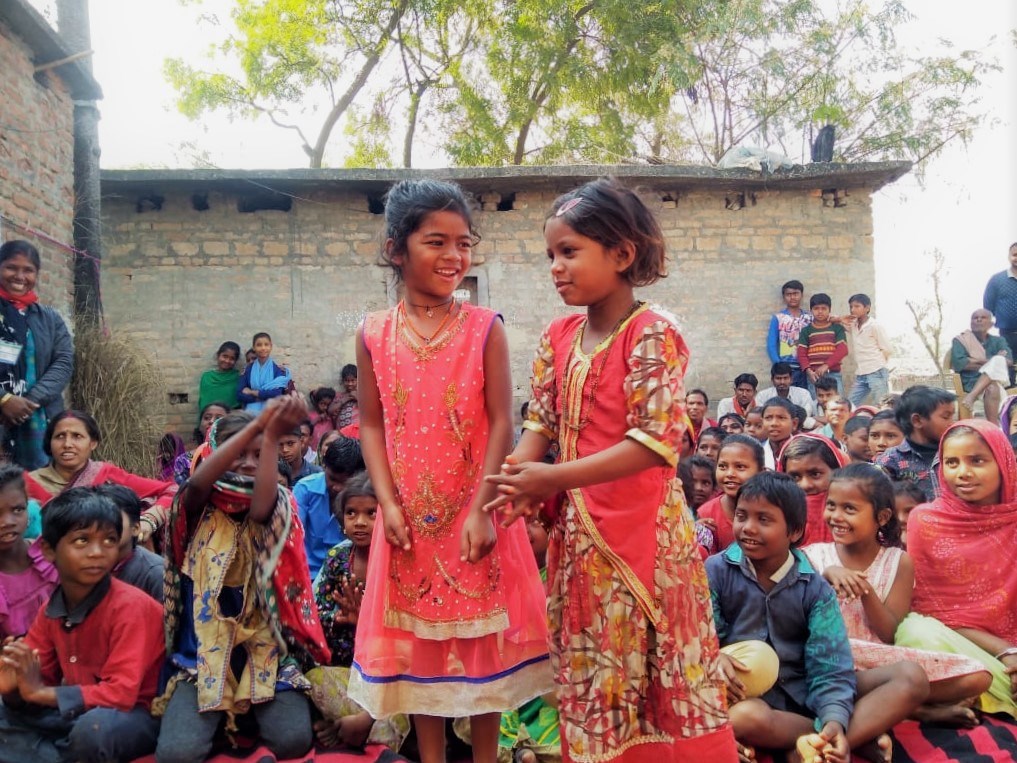In India, the COVID-19 pandemic led to the migration of migrant workers from Delhi, Punjab, Haryana, Uttar Pradesh, Gujarat, and other states in India back to their native towns. The countrywide lockdown due to COVID-19 has not only impacted the lives and livelihoods of migrants but also increased the risk of migrant children dropping out of school. This has further augmented the education gap and affected the elementary right to education for these children.
The number of migrant workers moving back to their home towns in India is more than 7,500,000 people, including children. As a consequence the drop out rates in India is rising. In these times of increasing inequalities and disruptions, our partner organization Fakirana Sisters Society facilitated the state government campaign ‘Namankan Pakhwara’ to provide educational opportunities to children of returning migrant workers. The WNCB project team, along with government teachers, mobilized 193 children and enrolled them in 8 primary and middle schools located in the project areas i.e. Chanpatia, Yogapatti & Bettiah blocks of West. Out of these, 97 were girls and 96 were boys. The primary objective of this enrollment is to help children regain access to their early childhood education in their critical schooling years, even amidst a global pandemic.

